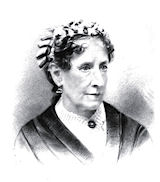New-York, Jan. 29th, 1863.
My own dear Son:
I enclose a copy of a letter received by your Uncle Phelps from Col. Allen. Mr. Phelps has been so good, so kind, so faithful to you and your interests, I can scarcely feel grateful enough. Now, he wishes me to lay before you the following facts for your consideration, and as a guide for your decision. Col. Allen says he has recruited about three hundred men, but owing to desertions he has only one hundred and fifty in camp, with the promise of two hundred more recruited by someone else, whom he may or may not receive. After receiving this letter Mr. Phelps went to Ex-Gov. Morgan; who is in the city, and requested him to write and ask Gov. Seymour to grant a furlough. Gov. M. said it would be of no use, as Gov. S. had no power; it was for him to give Commissions, and the War Department to make transfers. He (Gov. M.), however instructed his Secretary to write Col. Farnsworth requesting him to make an application, or assist you all in his power to get a furlough. The Gov. didn’t know as the Regt. could be raised, and if it were, Gov. S. might perhaps appoint another Col., and he was so desponding that Mr. Phelps, who had felt elated at your prospects, was so disappointed that he said to me, “I could have cried.” Then, Mr. Phelps met Mr. S. B. Chittenden, who said to him, “From all I hear of the talents of this young man, I think in the reorganization of the Army he will be promoted, which will be better than being troubled with this new Regt.” So you perceive, Mr. Phelps, having your interests so near his heart, scarcely knows how to advise, except to get a furlough if possible, come on, judge for yourself, and make your own decision. Col. Allen says, every day almost, ten or fifteen apply at his office, but, finding they are not authorized to give bounties, refuse to enlist. There is a bill now before the U. S. Senate for the encouragement of enlistments, offering bounties. I have told all these facts, and now leave the matter to your consideration. If you wish the Lt.-Colonelcy, I suppose you can have it at any time. Your own military experience makes you the most competent judge. Col. Allen wants you, and he thinks if bounties are offered, the Regt. will be full in four weeks. I cannot advise, but I pray God to guide you aright. God bless you my own dear son. Always,
Very Lovingly, Mother.
There are others pressing for the Lt.-Colonelcy, so as soon as you decide you had better write to your Uncle Phelps. Mayor Opdyke has a friend, somebody else, one of the Military Committee, also has a friend, but Col. Allen prefers you if you choose to accept.



